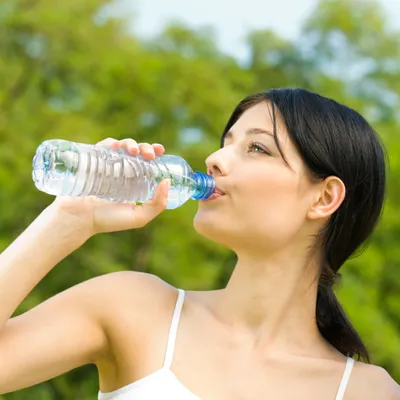
The report, which comes from several sports medicine experts presenting their findings at the California-based 2015 CrossFit Conference on Exercise-Associated Hyponatremia, argues that overhydration is actually a bigger concern than dehydration.
“The risks associated with dehydration are small,” notes Dr. James Winger, one of the report’s lead authors. “No one has died on sports fields from dehydration, and the adverse effects of mild dehydration are questionable. But athletes, on rare occasions, have died from overhydration.”
The report is part of an effort to update guidelines surrounding sports-related hydration. In the past, coaches pushed athletes to drink water in order to avoid conditions frequently associated with dehydration, like muscle cramps and heat stroke. But Winger says that’s a mistake. In fact, he says his research has shown few likes between those conditions and dehydration.
That’s why experts now argue that athletes should only hydrate when they’re thirsty and avoid drinking water or other fluids for the sake of doing so.
The reason: exercise-associated hyponatremia (EAH), otherwise known as overhydration, can overwhelm the kidneys, preventing it from producing enough sodium and causing the cells to swell. It’s a condition that can be life threatening, says exercise expert Dr. Tamara Hew-Butler.
“The evidence is firm that every single death from exercise-associated hyponatremia is avoidable,” Hew-Butler says. “We can consciously control the amount of fluid that enters our body and must reconsider, re-educate and reinforce appropriate fluid intake and intravenous fluid guidelines.”



